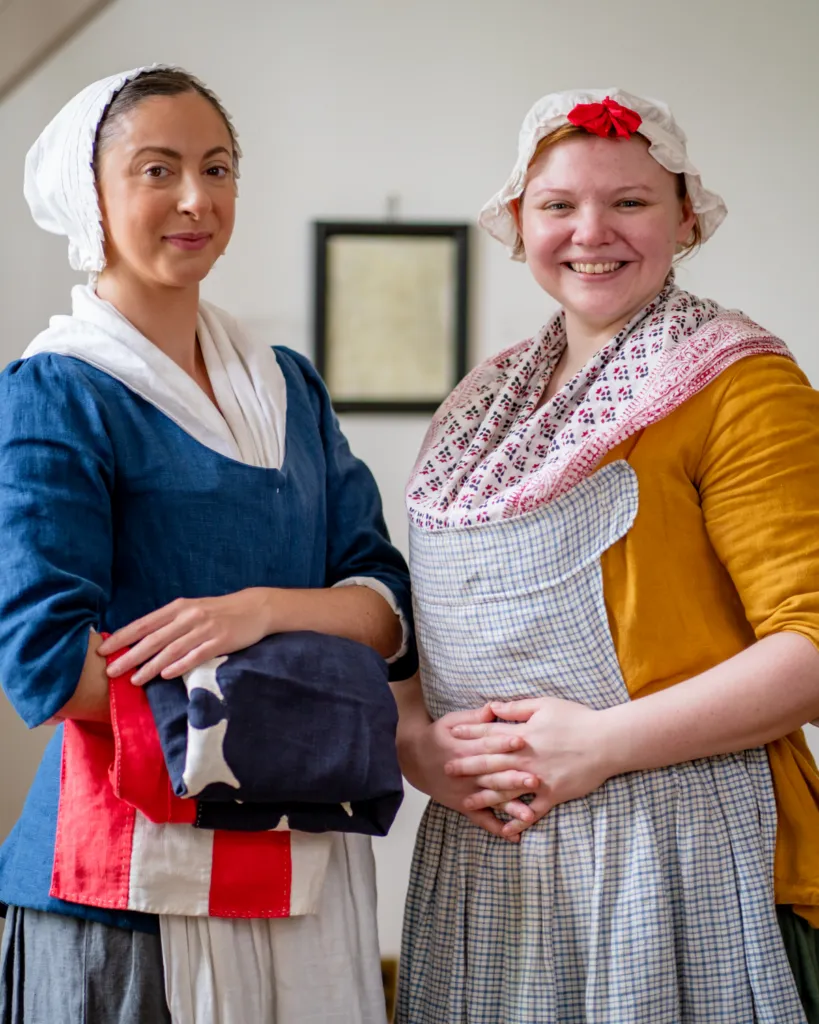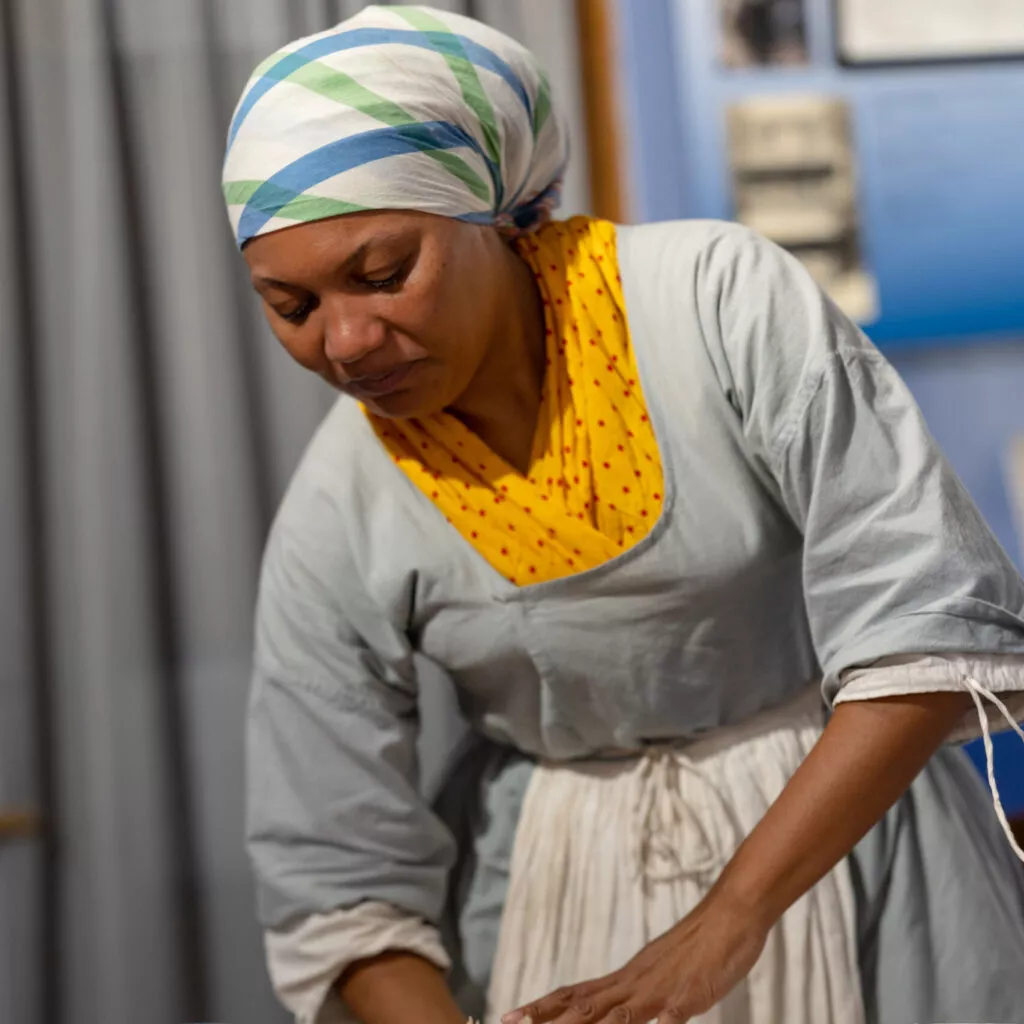
Meet the Women of the 18th Century
Many history books celebrate the lives of the boldface names of the 18th century and while their accomplishments are astonishing, the everyday lives of everyday people are often overlooked. Especially the lives of 18th century women whose hard work, determination and ability to multitask kept their families and the city buzzing along. Not unlike today!
During your visit, you might encounter some of the real women who lived in the city as part of the Betsy Ross House: Meet the Women of 18th Century Philadelphia programs.
Mary Crathorne
After her husband’s death, the widow Mary Crathorne took over his chocolate and mustard making business to keep her family going. But she didn’t stop there. Mary also owned the mill in Germantown used to produce her wares and advertised a wide variety of spices and other dry goods available for purchase. You can meet Mary in the Betsy Ross House courtyard to learn more about the process of making chocolate and her struggles as a businesswoman in 18th century Philadelphia.
Margaret Woodby

The Philadelphia Directory listed Margaret Woodby, a free Black woman, as a “cake baker” but that didn’t begin to summarize her culinary talents. In 1785, Margaret placed an ad for her shop in Coombs Alley near Front Street (now the corner of Cuthbert and Front streets) from which she sold “Cheese-cakes, Puddings, Jumbles, Jellies, Pies, Tarts, Custards, Sugar Biscuit, Rusk, Apees, Pound Cake, Queen Cake, and [everything] of the kind, at the lowest rates, and in the best manner.” Yum! She became successful and the 1790 census shows at that time she was still living and working in her red frame house and bakery. Meet Margaret, learn about the community of free Black tradespeople and maybe even learn to shape your own confections when you meet her in the courtyard as part of the Meet the Women of 18th Century Philadelphia program.
Margaret (Peggy) Chew
Born in 1760 into one of Philadelphia’s wealthiest and most social families, Peggy and her 11 sisters mixed, mingled, and socialized with the British soldiers who occupied Colonial Philadelphia during the Revolution. Peggy regales visitors in the courtyard with tales of her life as a young socialite, her “accomplishments” befitting a member of Colonial gentry and perhaps even some stories of her despicable famous suitor, Major John Andre.’ (Spoiler Alert: He was a spy!)